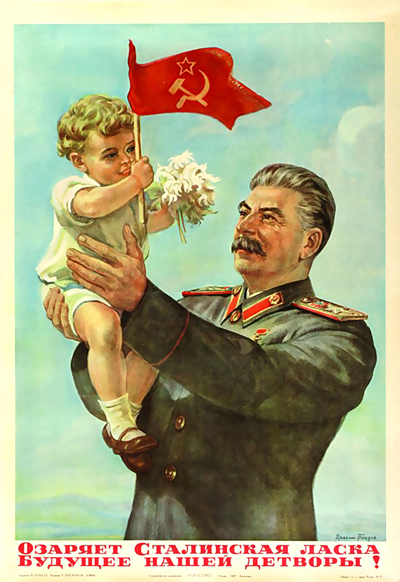I’ve briefly read about the definition of imperialism according to Lenin but I’m still a bit fuzzy on the difference between them.
edit: thanks to everyone who replied, your answers were helpful and informative.
It seems almost pointless to try to differentiate, because they have a massive overlap, but I see imperialism as a bit broader: the theft of land, labor / surplus value, and natural resources of a weaker country to feed the stronger one.
Whereas colonialism entails the strategy of establishing colonies, to bring in its own people, impose its own values and cultural norms, in order to better facilitate that theft.
Imperialism has more of an economic definition, referring broadly to theft, while colonialism has more of a military, political, or cultural one, although that also isn’t too satisfactory either because none of those terms exist independently.
I like the formulation of “capitalist-imperialism”, “slave-state-imperialism”, “mercantile-imperialism”, “feudal-imperialism” to be more specific about the production system.
Thanks for the explanation, it was hard for me to link them together because I only started reading Lenin’s definition of imperialism and didn’t see how they were related.
I like the formulation of “capitalist-imperialism”, “slave-state-imperialism”, “mercantile-imperialism”, “feudal-imperialism” to be more specific about the production system.
that’s a good way to tell them apart. It was hard to understand how capitalist-imperialism was related to “imperialism as empire” as @redtea described it.
I see colonialism as a subcategory of imperialism that pertains specifically with physically taking resources and lands by means of settlement and genocide. Imperialism on the other I see as something more board and can include stuff like forcing other countries to act in your interest through subversion or threats of violence.
100% agree, colonialism seems like a sub-category, or strategy to better do imperialism.
oh I thought of it as the other way around but this makes more sense. Thank you.
This really is an excellent question. Although the two terms are seemingly interchangeable at times, I understand colonialism as involving the implementation of colonies, whereas imperialism is a broader phenomenon describing how an empire manipulates and exploits its subjects.
For example, here is a quote from Stephen G. Gross describing some imperialism:
‘German imperialism evokes images of military aggression and ethnic cleansing. Yet even under the Third Reich, German imperialism has also worked through more subtle processes of economic and cultural penetration. […] This informal German empire was much more than just German; it involved German minorities as well as non-German elites from across Southeastern and Central Europe. And it gave Germany access to the markets and resources of half a continent. This empire emerged, however, not through guns fired. Instead, it arose through the work of businessmen of all kinds who manufactured products demanded outside Germany, through private institutions that engineered development programs, and through professors and students who became messengers of German ideas. It combined the export of goods and culture. And it was built with a kind of influence that can be called soft power.’
Traditional colonialism, in contrast, was a specific manifestation of imperialism that made space for settlers while superexploiting natives. See Transitional Economic Systems, pages 22–33, for a good example of this. The descriptions of the Fascist colonization of Poland are quite graphic.
I hope that this helps.
I was not aware that Nazi Germany was imperialist on top of their colonial expansion projects, thank you.
Imagine how the US (British) “Colonized” central America from the Native Americans vs how they “imperialize” South America and the middle east. One sets up colonies, takes the land and resources and displaces the local populace as they expand their own people. The other doesn’t really care about settling the area or moving people there. It’s just about stealing labor and resources from the local inhabitants.
At least this is how I had understood it. I could be mistaken.
Yes that’s a good way to put it. I was more familiar with colonialism than the marxist definition of imperialism because I come from a previously colonized country (presently part of the imperial periphery) and learned about that history.
Apologies, this comment is a little long. It’s quite thorough, though. I’ll split it into three comments to make it easier to read. I hope it helps.
1/3
‘Colonialism’ and ‘imperialism’ have different meanings in different contexts. For both words, there is an everyday meaning and a technical meaning. This ‘technical’ meaning could be different in, say, law or political economy. So, the definition of colonialism or imperialism will depend largely on who you ask.
I’ll offer some details to make the differences clearer, but I will be missing out some of the nuances and dates, etc, to make the text simpler.
Imperialism as Empire
Imperialism is often used to refer to an ‘empire’. The ruler of an ancient empire, an emperor or empress would usually rule their own country (as a king, queen, or dictator, perhaps) as well as other, foreign places. For example Rome was the core of the Roman Empire, but the Romans also ruled Egypt, Britain, Gaul, etc. In some periods, Rome did not have an ‘emperor’, but we may still call Rome during those periods an empire and imperialist.
When people use ‘imperialism’ to refer to an ‘empire’ in this way, they include the idea that the empire controls or governs foreign places. Again, as did Rome with Egypt, Britain, and Gaul. (‘Imperialism’ has a more specific meaning for Marxist-Leninists: see below).
Colonialism
This idea of control over foreign places is also part of ‘colonialism’, which involves direct political economic and legal control of colonies by a colonial power. This ’colonialism’, though, developed later than the type of imperialism / empire seen in the ancient world.
(In complicated terms, I am referring to a historically contingent legal relation – others may disagree and argue that colonialism is a broader concept.)
The problem here is that using ‘colonies’ and ‘colonial power’ to define ‘colonialism’ does not help those who do not already know what any one of these terms means. To understand the concept, we need to look elsewhere to describe colonialism as a process.
Colonialism is a relationship between two countries. One country – the coloniser, e.g Britain – exercises political, economic, and legal power over territory outside of its domestic territory – i.e. in the colony, e.g. Canada, Nigeria, Australia, and Ghana.
During the colonial period, the British Empire, did not necessarily control all the area within the modern-day countries of Canada, Nigeria, Australia, or Ghana. On the West Coast of Africa, Britain established trading posts. Within these trading posts, English law applied. Early on, Britain’s Gold Coast Colony (in the south of modern Ghana) and Lagos Colony (Nigeria) were governed as one jurisdiction.
2/3
Colonialism as a Legal Relation
This type of colonialism was also a legal relation. Here, I’ll quote from Halsbury’s Laws of England, ‘International Law and Foreign Relations: 7. Territory’ (2018) vol 61. Of course, other countries may have different laws about their control over foreign places, but the following explains how Britain sees the process of acquiring colonies.
Law (made by the colonial powers) can grant a colonial power ‘sovereignty over land, sea, and air territory’. Such sovereignty implies that, e.g. the colonial power has a ‘better claim to [the colonial territory] than any other state’.
Today, English / international law proposes that ‘[t]itle to territory may not be changed by resort to the use of armed force’. Regardless of whether this is true today (lawyers are very good at wrangling over the meaning of words), it was not true during the colonial era. That said, colonies were not only gained by direct violence (although violence always lurked in the background).
There are several ways, today, by which one state may legally gain title (sovereignty) over land. These methods are relevant to a discussion of colonialism because they are used by states to claim that their title to foreign territories (modern-day colonies) is still good title.
The methods are:
- ‘acquisition by occupation’ (where the land was otherwise ‘empty’ – a racist concept that does not treat indigenous people as fully human or ‘civilised’);
- ‘acquisition by accretion (where land changes naturally, e.g. an island rising out of the sea);
- ‘acquisition by cession’ (which means, ‘the peaceful transfer by one state to another of sovereignty over the territory, usually by treaty, or by way of gift, purchase or exchange’);
- ‘acquisition by prescription’ (where one state gains title because it has been administering an area over which it mistakenly thought it had title);
- ‘acquisition by creation of new states’ (where a group of powers agree to carve up an area between them, such as Israel or any of the other countries in the Middle East or Africa with perfectly straight borders).
Whichever method, the state claiming sovereignty must continuously and effectively control the area over which it claims to have sovereignty. (These rules also govern e.g. the fact that ‘Spain’ is the Iberian peninsula except for Portugal, the Basque region, and Gibraltar, but we’re only concerned here with ‘foreign territories’ such as Britain’s claim to Gibraltar or Malta.)
Acquiring Colonies
During the colonial era, English lawyers accepted five ways of gaining sovereignty over an area:
- Settlements (like Canada, the US, and Australia, where British people settled and took English law and custom with them);
- Ceded territories (called ‘cession’, above);
- Conquered territories;
- Protectorates and Protected States;
- Trust territories.
I shan’t go into the details of all these methods, except to say that Britain acquired its colonies in lots of different ways. In many cases, British soldiers would murder the indigenous people and build their own homes in the new land (a settlement); or British merchants would (consensually) buy or build a trading post, trade with the indigenous peoples, and insist that English law governed the contracts (a ceded region); or British officials would enter into a treaty with one tribe to defeat another tribe and divide the land between them (a ceded region).
Example: Ghana and the Gold Coast
Going back to the examples, above, Britain sided with the Fante against the Asante (Ashante) to expand its power in the Gold Coast. After the Asante wars (at least seven wars), the Fante won, became the dominant indigenous force in the region, and ceded territory to the British. The law calls this ‘peaceful’, because sovereignty was given by treaty, even though it was backed by violence.
The British only had legal sovereignty over limited areas of the Gold Coast, but if the indigenous wished to trade internationally, they would have to go through the British, and accept English law. So colonialism does not mean total domination; but just enough domination for the colonial power to get what it wants from the colony – resources, workers, etc.
Britain was not the only European power on Africa’s West Coast. The British Crown and British merchants got a strong foothold on the Gold Coast by buying up Dutch, Portuguese and other European forts in the region. French and Germans also had colonies in what is now Ghana. After World War II, it was thought (probably by Britain, but not by the French, Germans, or Ghanaians) that Britain was the best country to rule the area.
The indigenous people definitely did not agree. Led by Kwame Nkrumah, they staged a general strike, overthrew the British government, and created a new independent government and state of Ghana (the name of a nearby, but older / extinct African kingdom). The British then enacted the Ghana Independence Act 1957, confirming that Ghana would self-rule.
This shows how colonialism is a legal relation, as it was created by law and had to be dissolved by law. (Of course, at this point, the Ghanaians probably did not care whether English law accepted their independence.)
To sum up, colonialism involves a legal relationship by which one country lawfully exercises control over other territories. (I am not making any moral argument, here. Just because something is lawful or legal does not mean it is moral.)
3/3
Lenin’s Imperialism
You said you are already familiar with Lenin’s concept of imperialism, but I’ll sum it up, here, for others and to make this part of the comment clearer.
For Lenin, imperialism is not just another word for empire (see above). He argued that imperialism is a relationship that develops in capitalism. Imperialism, to him, meant ‘monopoly’ control of finance capital. This arises on a global scale when industry uses a bank’s capital to expand its business and control whole markets.
Capitalists must join together in cartels, trusts, and companies, etc, to beat the competition. Otherwise, a competitor will do this and run the other capitalist(s) out of business. A trust, for instance, allows lots of people to put their money into one pot, giving the trustees the power to use that collective pot for one purpose.
So instead of a series of independent shops, a trust can buy up lots of properties (as in a chain store) and use its greater, collective bargaining power to insist on low prices from wholesalers and manufacturers. This action consolidates the trust’s market power, and other independent shops cannot compete, go out of business, and their assets can be bought for cheap by the trust, further increasing its market power.
The problem with trusts is that trustees are personally liable for losses. A company director has very similar powers and duties but is unlikely to be liable for the company’s actions (such as human rights abuses of its workers).
Just as colonialism is a legal relation, imperialists tend to rely on a mixture of legal forms (trusts, companies, etc), to create monopolies. Vanguard and Blackrock are two trusts, for example, which own shares in almost every major multinational company, including Microsoft and Apple. (Yep, they’re owned by the same shareholders!)
Company / trust decisions may be made by majority vote at board meetings. If one owns 100% of a company, one controls the company’s decisions. But, to guarantee a vote, one only needs 51% of the shares. Lenin showed that as many people do not turn up to board meetings, it is often enough to own 40% of a companies shares to win every vote. This means that an imperialist can buy about 40% of the shares in a company and have absolute control over what that company does.
This process can apply domestically and internationally.
Domestic Imperialism
Take the mortgage-renting market as an example. The bank lends a person 50% of the value of a house. That person puts up the other 50% and rents out the building for a monthly fee. The rent must cover the mortgage repayments and whatever the landlord wants to make on top. Importantly, the bank gets its money first, or it will take the house and sell it. By this way, the imperialist banker controls the rental market because its interest rate and fees determine the absolute minimum price of the rent.
International Imperialism
Imperialists use a similar process around the world, by lending, e.g. an Egyptian factory owner the money for new equipment. This may be in the shape of a loan or a purchase of shares (purchasing shares is just one method of exchanging finance capital for economy power / control). Even if the imperialist does not take an active part in running the business to maximise profit, the factory owner must pay back the loan or lose the equipment or the land. If this means lowering wages and working conditions, so be it.
The process of lending finance capital (imperialism) gives the imperialist economic power over the infrastructure and development of a country without the need for political and legal control over the territory. In this sense, Lenin’s notion of imperialism is not about the political and legal control over territories, but economic control so it differs markedly from imperialism.
It is worth noting that a state that wants capital in order to develop its industries will have to enact laws that appease the imperialists. The difference with colonialism is that the subject state makes its own laws rather than having them imposed directly by a colonial power.
Domestic Colonialism
The argument has been made that imperialists can shape a country to such an extent, such as the US, France, or Britain, that they create domestic colonies of oppressed peoples. E.g. of the prison labour force in the US. In this way, imperialism can lead to new forms of colonialism that break from the traditional model of one state controlling a foreign territory.
Neo-Colonialism
To make things a little simpler and more complex, we can turn to Kwame Nkrumah. Briefly, he accepted Lenin’s concept of imperialism. He observed that once colonies gained their independence, the colonial powers were quick to flood the ex-colonies with finance capital. In this way, colonialism did not end, but it developed into a new form.
The colonial powers exerted just as much (if not more) power over the ex-colonies as they had over colonies proper. This is why Total (the French oil company), for example, can lay an oil pipeline that will displace over 100,000 African people today. If the states involved were truly independent and democratic, those displaced people would surely reject the pipeline. But as the imperialist has so much control, the project will go ahead.
Thank you for this very detailed series of comments, I enjoyed reading it. I think it was precisely this old usage of empire/imperialism that was confusing me since it no longer exists in the modern world. Thanks for clearing this up.





